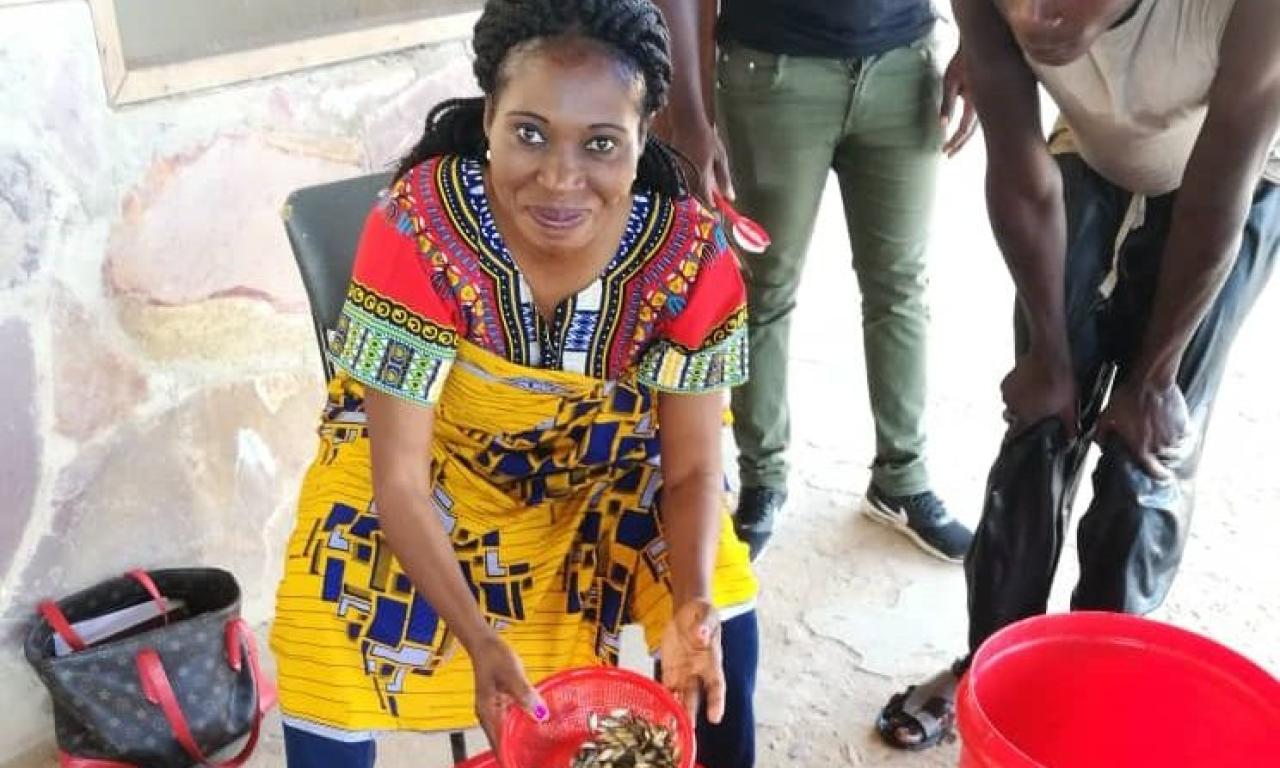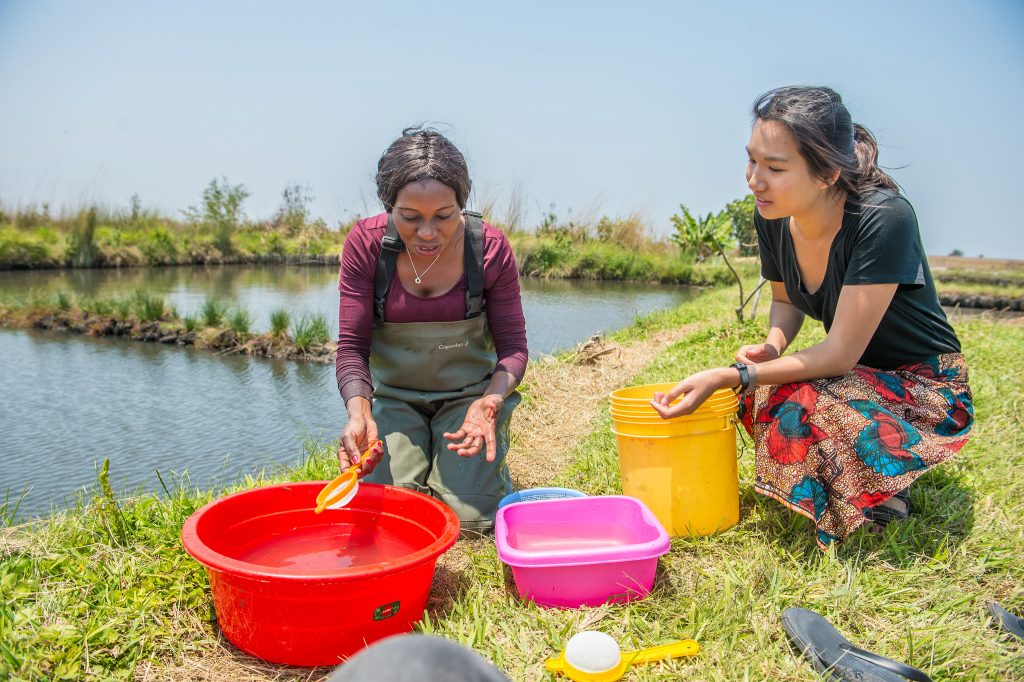

Dr. Mary Lundeba is a sustainable aquaculture scientist based in Northern Zambia. She has been working as a field researcher with WorldFish for over 3 years. She is one of the first women to complete the Master of Science Degree in Aquaculture and Fisheries Science from the University of Malawi in 2005 and holds a Ph.D. in Fisheries Science from Penn State University. An expert in aquaculture research, she has been awarded several scholarships and prizes, including the prestigious Elizabeth Bowers Zambia Education fund and the P.E.O International Peace scholarship.
What are you currently working on for WorldFish?
My research area is aquaculture, and my current work includes piloting inclusive business and entrepreneurial models (IBEMs) and the development of private sector linkages along the aquaculture value chain for small to medium aquaculture businesses to increase production and productivity of smallholder fish farmers. Furthermore, I am focused on researching conventional vs. supplemental feeding of longfin tilapia (Oreochromis macrochir) ponds.
What’s the most exciting thing about your research area? Describe a unique situation you have found while doing research work.
I am extremely motivated by my research work in aquaculture, especially after observing first-hand the impacts of fish farming in uplifting the livelihoods of rural communities in Northern Zambia. My most memorable recollection was a while ago, after terminating setting up experimental fish ponds for a community of women in Northern Zambia. I witnessed as the women started selling their first produce of fish grown in those ponds. As they were counting the profits of the sale, the celebration begun with dancing and singing, a heartwarming scene of empowerment and joy.
What’s your favorite part of the research process?
The research area I am involved in includes a lot of social aspects, gender, and youth, which is outside of my academic qualifications. I want to reiterate the fact that in Zambia, fish farming is a men-dominated sector. Attempting to bring aboard the youth and women within the designs of fish farming has made this experience very interesting. I also enjoy fieldwork as I love to do on-site research in the farms and ponds as opposed to on-station. I am also a peoples’ person, and I often enjoy mingling with my target groups as a way to hold discussions and get to know their precious indigenous knowledge.
What innovation do you think has the greatest potential to change your research area in the country you are working in?
The biggest innovation with the most potential in Zambia would have to be private sector intervention within the development of small-scale aquaculture. In particular, the intervention in fish feed and fish seed would positively impact input supply, market output, and extension deliveries. Private sector intervention would make fish farming more accessible, and the same goes for nutritious fish in Zambian diets and, at the same time, increased income for many in the rural areas of Zambia.
What piece of scientific research that you have conducted are you most proud of and why?
I am very proud to have conducted research that listed the inventories and GPS coordinates of over 2,000 smallholder fish farmers in Northern Zambia, which in turn was used to inform private sector investment within the small-scale aquaculture sector.
What was the most recent international conference or event at which you have had a chance to showcase your research?
I have attended the World Aquaculture Society Conference in Cape Town, South Africa. The event was very informative, and it was very thrilling to catch up with longtime acquaintances from around the world. I was able to exhibit results from fish feed trials using the tilapia (Oreochromis) species in Northern Zambia.
What do you hope your research achieves?
I hope my research will advance sustainable fish production and improve pond productivity for the small-scale aquaculture sector in Zambia. In particular, I hope my research will be informing and influencing the development of medium and smallholder value chains in the aquaculture business, which currently does not exist for small-scale farmers in Northern Zambia.
What would your dream role be in your research area?
My dream role is what I am doing now. My goal is to continue to deepen my research work and facilitate private sector linkages with small and medium-scale fish farmers for improved fish feed and quality fish seed within Zambian rural communities.